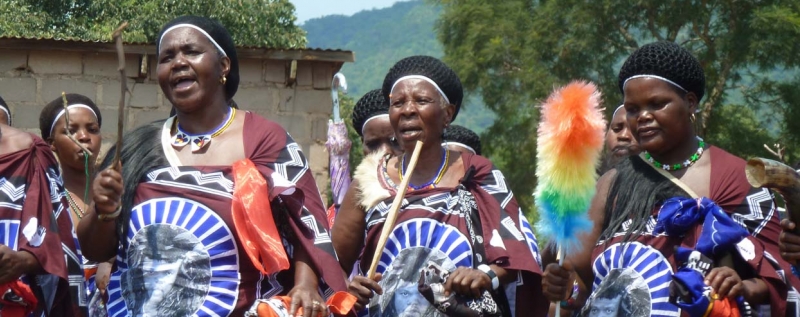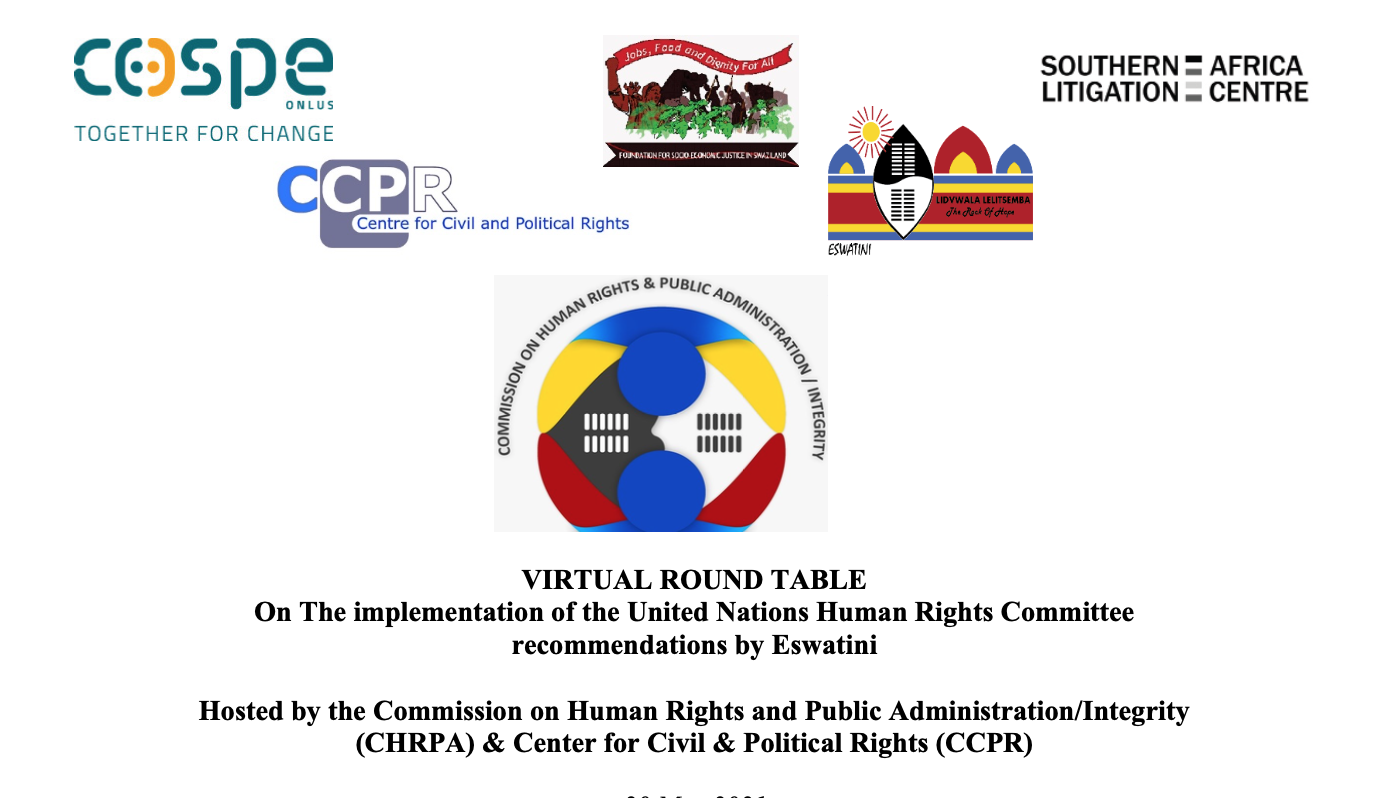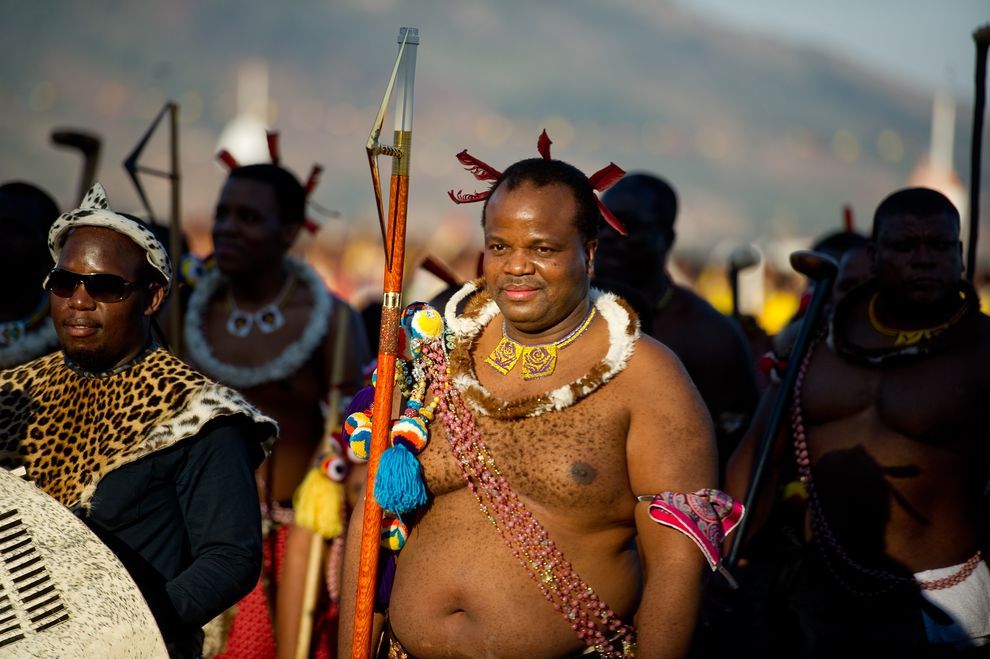Swaziland: The impact of an absolute monarchy on justice administration, freedom of association and discrimination against women
Published on 21 Jul 2017, 02:53 PM
 Women are particular affected by discriminatorion in Swaziland. Photo credit: Maureen Littlejohn.
Women are particular affected by discriminatorion in Swaziland. Photo credit: Maureen Littlejohn.
Swaziland was reviewed by the Human Rights Committee on the 7th and 10th of July 2017 in the absence of the State report. The delegation expressed its regret for the State’s inability to submit its report on time, but showed commitment by replying to the List of Issues and sending a high level delegation to Geneva. Despite having welcomed Swaziland’s efforts towards the implementation of its human rights in the country, the Committee members remain concerned with several matters especially in light of Swaziland’s monarchical traditions and the dual legal system that comprises the application of both common law and customary law. Among the main questions discussed, there were issues related to the prohibition of discrimination, the administration of justice and violations to the right to freedom of association. The webcast of the review is available here: part 1 and part 2.
"We have received reports that Swaziland’s domestic laws and customary practices play a pivotal role in perpetuating inequality between men and women"
- Member of the Human Rights Committee
Discrimination
Several questions were raised by the Human Rights Committee in relation to the prohibition of discrimination, notably with regards to women, children and LGBTI persons. According to information provided by NGOs, women have the status of ‘minors’ under domestic law and are subject to several restrictions regarding property rights. In this context, the question of property grabbing against widows and orphans was highlighted by Committee members in different occasions throughout the review.
Furthermore, Swazi women cannot transfer their citizenship to children born of foreign fathers. Other matters that have called the attention of the Committee refer to the high rates of forced marriages and polygamist practices, and the fact that the Girls and Women Protection Act does not include marital rape among the offences prescribed therein. In response, the Swazi delegation stated that polygamy is lawful in the country and “therefore it is not a problem that needs to be overcome”. Still with regards to women’s rights, the Human Rights Committee has expressed great concern with regards to the strict prohibition of abortion in Swaziland’s domestic law and the impact this could have in increasing maternal mortality rates. According to information from the Ministry of Health of Swaziland, about 20% of maternal deaths are related to unsafe abortions.
In relation to the LGBTI community, the Committee members made reference to the fact that the Swazi Constitution does not include gender identity as one of the grounds for the prohibition of discrimination. Furthermore, the delegation of Swaziland was inquired about the criminalisation of sodomy, to which they replied that “Swaziland does not have the intention of de-criminalising it”.
Justice system
The lack of independence of the judiciary and questions related to the separation of powers were discussed with concern by the Human Rights Committee considering the broad powers of the King. Under the Swazi Constitution, the King selects the Chief Justice and other judges of the High Court, the Prime Minister, two-thirds of the Senate members, among others. In addition, Committee members have received information that many of these officials are relatives of the King, including the Prime Minister, which results in “an electoral process that is more a selection by the government than an actual selection process”. The Swazi delegation denied such information and stated that the appointment of public officials involves consultations with State authorities and institutions. In addition, the delegation affirmed that judges and judicial officers enjoy secure of tenure as they can only be removed after an independent and impartial inquiry has been carried out.
When asked about steps taken to combat corruption and lack of accountability in this regard, the Swazi delegation made reference to the Prevention of Corruption Act, which allowed the creation of the Anti-Corruption Commission. According to the delegation, the Commission’s members are independent and properly trained, and 20 corruption cases were passed on to the judicial authorities for prosecution according to information from June 2017. Nevertheless, the Committee members stated that it is difficult to assess the impact of the Anti-Corruption Commission due to an existing backlog of judicial cases in the country.
Freedom of association
Political parties are banned in Swaziland and the police has discretionary powers to interrupt their meetings and activities and to repress them. Moreover, members of political parties are not allowed to contest elections results. Such restrictive practices derive from the King’s Proclamation of 1973, which is applied in practice despite the information given by the State party that it is no longer in force. The Swazi delegation also stated that the Swazi Constitution does not provide for political parties and therefore candidates can only be elected as individuals to the Parliament. In light of these circumstances, members of the Committee expressed their concern with regards to the protection of freedom of association and electoral rights in Swaziland in accordance with the Covenant.
Recommendations of the Committee
Within one year, the State party should provide information on the following recommendations from the Committee’s Concluding Observations:
Violence against women
- Adopt legislation to criminalise sexual offenses and domestic violence;
- Provide the police, prosecutors and the judiciary with training on sexual and gender-based violence and on evidence gathering;
- Raise awareness on the impact of sexual and gender-based violence and encourage the reporting of such conducts;
- Investigate sexual and gender based violence, punish perpetrators in case of conviction, and provide reparation for the victims;
- Ensure that victims have access to remedies and protection, including to psychological and educational centres, accommodation or shelters.
Freedom of expression, assembly and association
- Prevent and redress attacks on human rights defenders and other social activists;
- Adopt legislation to ensure that any restriction on these rights comply with the Covenant;
- Protect the right to freedom of expression, association and peaceful assembly;
- Ensure that police officials, judges and prosecutors receive adequate training regarding such protection.
Participation in public affairs and corruption
- Foster political pluralism and allow the registration and participation of political parties;
- Undertake a constitutional reform to devolve power to democratically elected government branches;
- Guarantee the right to participate in public affairs and to have equal access to public service;
- Guarantee free and fair elections;
- Ensure independence and effectiveness of bodies in charge of elections and anti-corruption.
The next (second) periodic report of Swaziland should be submitted by 28 July 2021.
 Women are particular affected by discriminatorion in Swaziland. Photo credit: Maureen Littlejohn.
Women are particular affected by discriminatorion in Swaziland. Photo credit: Maureen Littlejohn.



